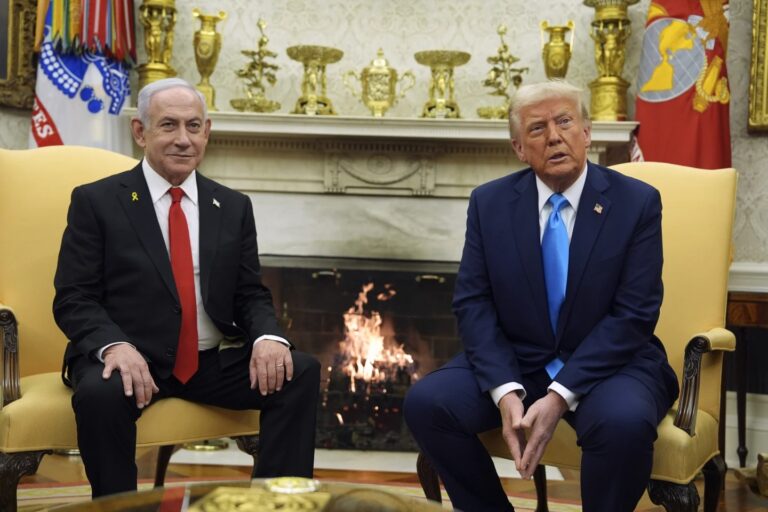WJW: Last week, former President Jimmy Carter penned an op-ed in USA Today titled, �Israel�s New Plan: A Land Grab.� He chastises Israel for its attempt to �colonize� Palestinian land and paints the Palestinian leadership as champing at the bit to negotiate a peace deal with recalcitrant Israelis.?
Carter has long been known for his one-sided reading of the Arab-Israeli conflict. But even by Jimmy Carter�s standards, this article is breathtaking in its willingness to ignore facts, bend reality and invent history to fit a twisted analysis of the conflict.
He describes Prime Minister Ehud Olmert�s unilateral withdrawal plan as one �which would take about half of the Palestinian West Bank and encapsulates the urban areas within a huge concrete wall … .�
Where does he get this stuff? Olmert�s government has not produced any definitive unilateral withdrawal plan. However, every report of possible plans assumes that if there continues to be no Palestinian peace partner, then Israel will withdraw its population behind the security fence � taking in about 8 percent of the West Bank.
Moreover, it is astonishingly disingenuous to talk about concrete wall encapsulating Palestinian urban areas. Of the seven cities that the Palestinian Authority lists as having more than 100,000 people, only in Jerusalem will concrete barriers run through the middle of urbanized land.
Even in Jerusalem, it is misleading to say that the fence �encapsulates� the urban population. He further claims that the Olmert plan �would effectively divide it [the West Bank] into three portions.� This echoes the Palestinian Authority�s rhetoric about bantustans. While the convergence plan envisions creating strips of land that reach into the West Bank in a few areas, a review of the security fence maps belies charges of chopping the area up into three separate portions.
Carter twists the history of the conflict in a number of perverse ways. He says that the only division of territory that is recognized by the United States and the international community is the pre-1967 Green Line. It is hard to believe that Carter does not know that this claim is simply false � in his time in office, he was known as a student of details. The Green Line is just the 1949 armistice line from the end of Israel�s War of Independence.
Neither the United States nor the international community recognized this as the final border between Israel and Jordan (there was no Palestinian entity at the time). Moreover, he almost certainly must know that Security Council Resolution 242, passed in the wake of June 1967 war � at the insistence of the United States and the United Kingdom � did not require Israel to return to those old armistice lines.
Perhaps, most amazingly, Carter spins a yarn about how Prime Minister Ariel Sharon and the Israeli government rejected the road map of the Quartet of negotiators (the U.S., the European Union, Russia and the U.N.) while telling us that the same road map has �been endorsed unequivocally by the moderate Palestinian President Mahomoud Abbas.� To add insult to injury, our former president paints the Hamas Prime Minister Ismail Haniyeh as someone who will also support Abbas led peace talks with Israel.
These distortions of the facts are so far reaching, so mind-boggling, that it is difficult to know where to begin in rebuffing them. Has President Carter totally forgotten that a central requirement of the Phase I portion of the road map is that the P.A. bring a halt to violence, terrorism and incitement? Is he so oblivious to Hamas� commitment to terror and to Israel�s destruction that he seriously believes that Hamas is supportive of the road map?
Undoubtedly, we have not heard the end of Carter�s Middle East musings. In November, he is slated to publish a book titled Palestine: Peace or Apartheid.
As someone who once worked for Jimmy Carter, it brings me no pleasure to criticize the former president. His commitment to such praiseworthy projects as Habitat for Humanity brings much credit to his post-White House years. No one disputes his right to criticize Israel. Few pro-Israel activists will argue that Israel is always right.
But his ongoing, deeply biased commentary on the Arab-Israeli conflict does a great deal of damage to the truth. Democrats, as well as others, have an obligation to rebut his charges.
President Carter unfairly damages Israel�s worldwide image when he resorts to distortions and falsehoods about her actions. He damages any realistic prospects for reviving the peace process when he ignores the deeply dysfunctional nature of Hamas ideology and policies. But perhaps the most tragic outcome of his charges is the damage it does to his own reputation and legacy.











One Response
Jimmy Carter makes no secret of his bias,he is not credible